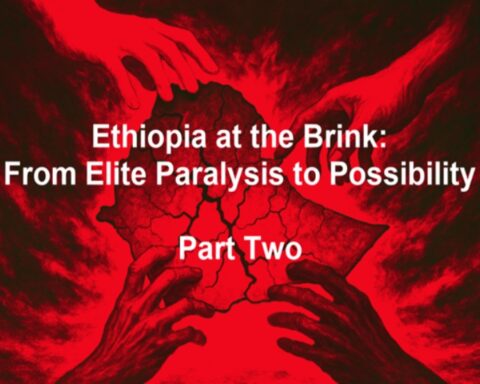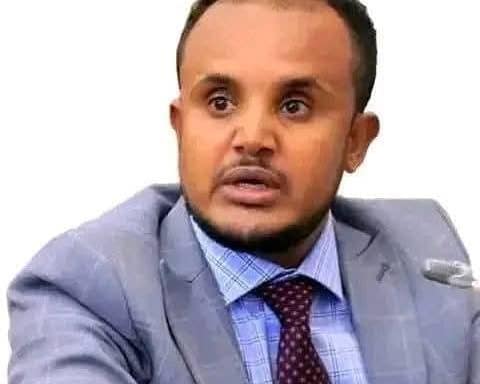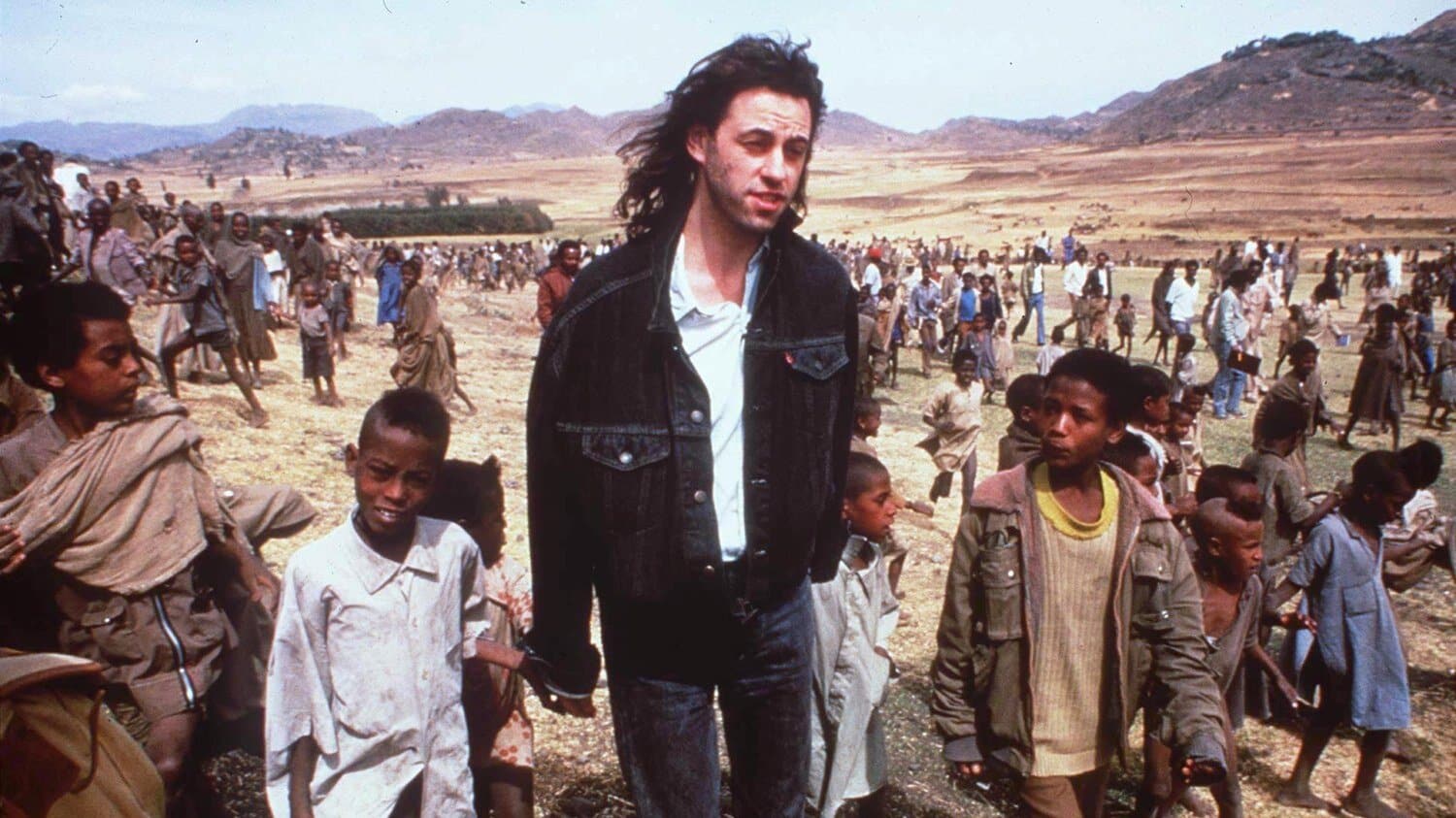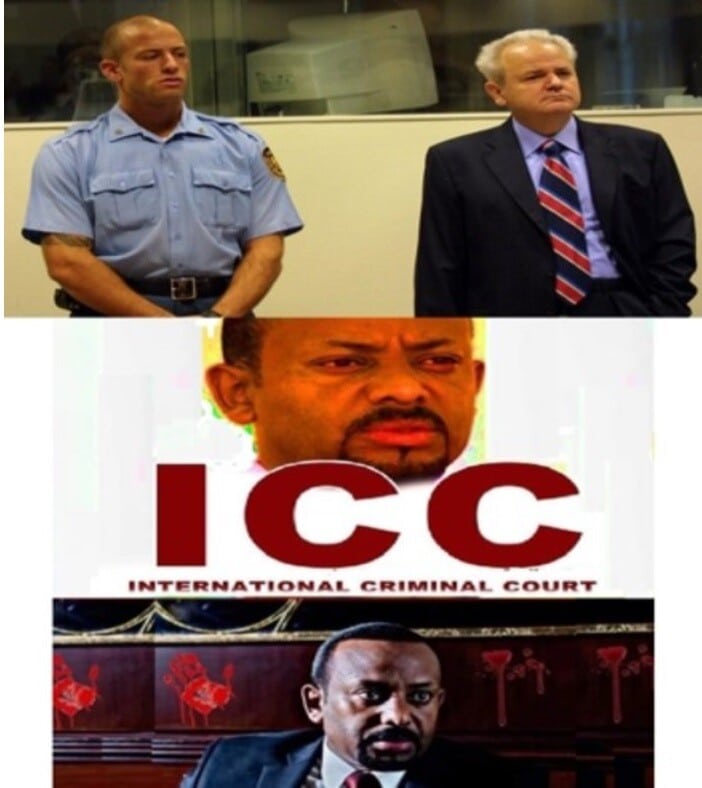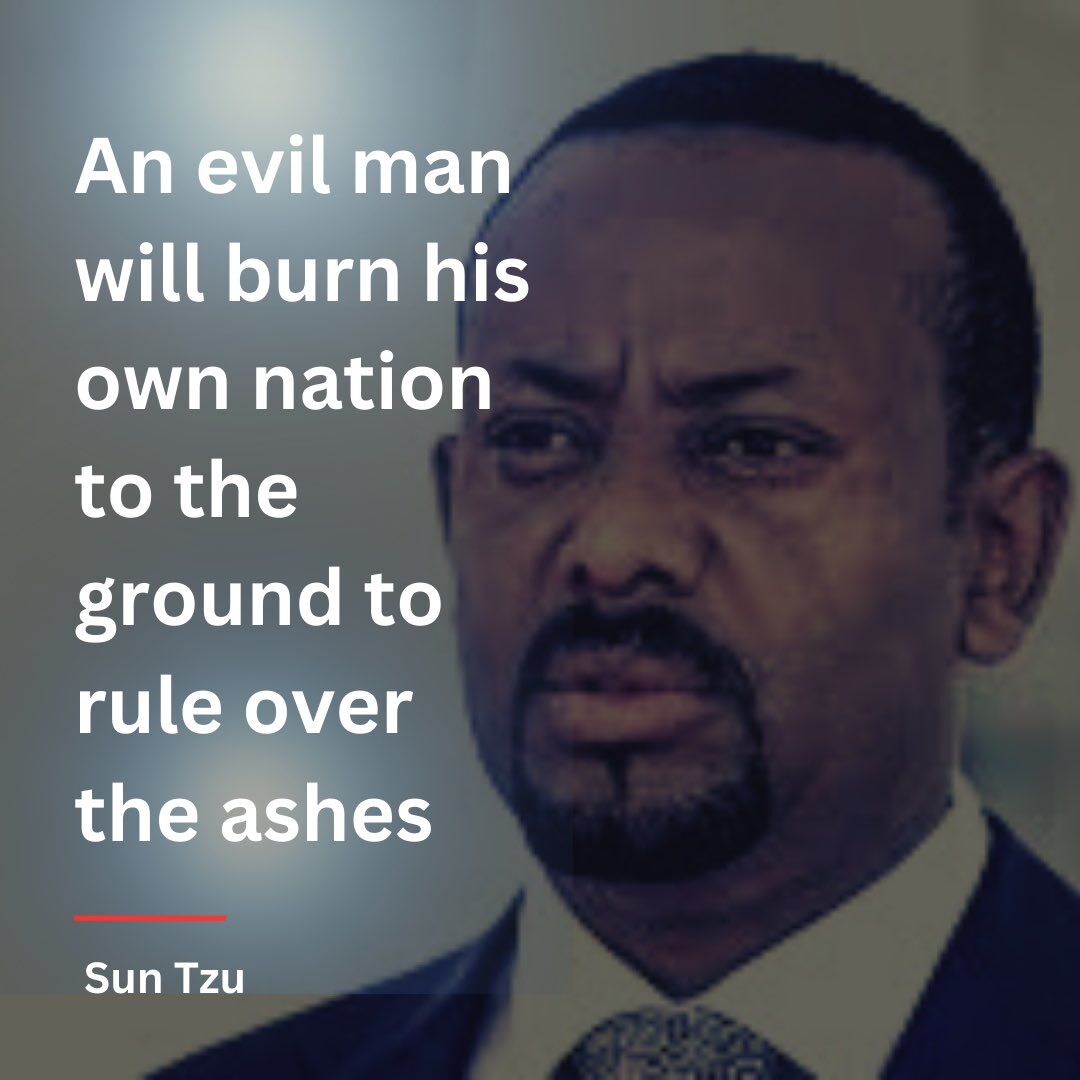
“..Stab the body and it heals but injure the heart and the wound lasts a lifetime.”
― Mineko Iwasaki
Creating a strong sense of hope under the guise of patriotism Abiy Ahmed was hailed as an honest visionary leader and ascended to power on a platform of empty promises and clever deceptions, manipulating the hopes and fears of the Ethiopian people. His unity and patriotic speeches were unparalleled in modern Ethiopia, we sang along hoping that Ethiopia was ushered to a new level of prosperity and unity where its people could thrive together with a shared vision. Well, it was euphoric time with boundless hopes, the air buzzed with optimism as Ethiopians of all walks of life believed they were witnessing the dawn of a new era. Only if we knew.
He deceived us masterfully cloaking himself in the language of patriotism and adopting our love for our country as his own, he fed our hunger for hope and unity, he preached about pride and shared destiny but with all different intentions. Yes, we believed him for he spoke to the heart of what we cherished most, Ethiopia. What most thought would be a time of reconciliation, where past false narratives give way to lasting peace was not to be.
አጥር ላይ ለተንጠለጠሉ ኢትዮጵያውያን!
የአማራ የግፍ ፅዋው ሞልቶ መፍሰሱን እና የፋኖ ትግል የህልውና መሆኑን ከሊቅ እስከ ደቂቅ መመሥከሩን እንዴት ማስተባበል ይቻላል?
ድል ለፋኖ! pic.twitter.com/eGWN30mB3Y
— Abrar Suleiman/አብራር ሱሌማን (@AbrarSuleiman) December 3, 2024
It took us some time to see the real man masked in a web of lies and sheer corruption. The Ethiopian people saw the truth behind his empty words. Betrayed and disillusioned by his oratory and “ love of Country” the people who put him at the top of the mountain now demand accountability. His fall is inevitable and it is not a question of if but when. The real question is, does his downfall drag the country down with him , if he has not done it already? He has dismantled institutions; the economy is in shambles and society is polarized; the country is facing a prolonged period of instability that probably might rival the period of the Era of princes( Zemen Mesafint). The Zemen Mesafint was a long period in Ethiopian painful history when kings were in their throne but only in name. The country was ruled by regional chiefs( Dejazmach’s)with no allegiance to the king in the throne. It is reminiscent of today’s Ethiopian reality. As it is today, back then social cohesion was broken, lawlessness was rampant. Yes, it was a failed state then, is it not true in today’s Ethiopia too?
In general, a failed state refers to a country where the government’s ability to perform its fundamental duties has broken down. Most of the criteria of a failed state are evident in Ethiopia.
-
- The government cannot control its territory. Tigray is lost, it is running its own affairs without federal government intervention, War is raging in Amhara land in which greater part of it is under the control of Fano. Even Oromia from which Abiy and most of his cadres come is ungovernable. South Sudan and North Sudan have taken a large swath of grazing and agricultural lands. The government’s loss of control of its territory has manifested itself with political, social, and economic disruption as we witness them on a daily basis.
- Erosion of authority:The government has failed to maintain public order nor can it enforce the law. Its inability to keep law and order has eroded its authority, even in Addis Ababa, it is fragile at best. People are robbed in broad day light and they can do nothing about it nor does the government. Criminal activity has become frequent and it has become part of the daily life of our people. The Abiy Administration, if one dares to call it, has lost its legitimacy, control, and influence over what it rules. Police, instead of enforcing the law, they are busy swindling money from ordinary people.
- Inability to provide public services:The destruction of public infrastructures is evident everywhere, some by its own security forces. Essential services are almost nonexistent wherever war is raging , or in areas wherever the government claims to have control of. Even Addis Ababa could not escape from such a terrible nightmare.
- Healthcareis a thing of the past especially in areas where fighting is a daily occurrence. In Amhara areas even the infrastructures are bombed to oblivion, as a result expectant mothers are left to their own fate usually to a tragic end to themselves and their unborn. The Abiy government has purposely prevented medicines from reaching the sick, to punish the people at large for being Amhara from which Fano hails, guilty by association. For Abiy it makes no difference whether or not you are a combatant, your ethnicity is good enough to be at the receiving end of his madness.
- Education. The education system has totally failed in all areas in all regions; most of the schools in Amhara region are closed and schools are bombed. There are so many teachers everywhere who have not been paid their salary for so many months, some line up with their students to get their lunch. The misery continues.
- Public safety. It is a new lexicon to Abiy’s administration, no one is safe under Abiy Ahmed’s sky.
- Justice system. Justice for all is alien to them. Oromuma justice is only for the protection of its cadres. The list under the government’s inability to provide services goes on and on, there is no pretty picture, none at all.
- Widespread corruption: Institutions have failed, most are breeding grounds for corruption, as a result few are getting extremely richer while the great majority is getting poorer. The administration claims to equalize the rich and the poor( if one understands what it means), what they achieved is creating two distinct classes; the invisible rich( their cronies) and the invisible poor, the vast majority. The interests of the few with connections are served at the expense of the public. Bribery and favoritism are quite common across various sectors. Extortion is the order of the day, favoring Oromuma cadres’ fraud and embezzlement go as high as the prime minister’s office. As a result, public trust has eroded.
- Severe economic decline : Eating three times a day is a thing of the past, millions are starving. Inflation on one hand and economic stagnation on the other have crippled the population. Rising unemployment is staggering and, yet the prosperity gospel denies the stark reality and preaches how Ethiopians are better off today than yester years. The recent devaluation of currency led to a sharp decline in value against others affecting not only import costs but also the purchasing power of all. It is not surprising that businesses are closing and fleeing to other countries for a better opportunity, especially foreign investors.
- Mass migration and refugees: fleeing the country to escape violence and starvation is on the rise. The internal displacement continues unabated, orchestrated by the government. Targeted violence against certain ethnic groups has continued under the watchful eyes of Abiy Ahmed. Insurgencies in Oromia have killed thousands and displaced hundreds of thousands more. As displacement continues it disrupts the network of relationships breaking community bonds. Forced displacement means loss of connections to neighbors, forcing them to live in unfamiliar places. It is designed to achieve the government’s goal of Oromuma ideology.
- Human rights violation:The state cannot protect human rights; it rather violates it. Violence is rampant, some by the state itself and others by those who have close ties to the government. It is common for gangsters to kidnap people for ransom, the transaction is facilitated through banks with the tacit knowledge of the government. The sad thing is that even after paying the money some of the people are killed by their captors. There is no law the state can enforce. Torture and arbitrary detention are the whole mark of the administration. Free speech, press or peaceful assembly are unthinkable under the Oromuma rule; journalists, political opponents including parliamentarians are languishing in Abiy Ahmed’s dungeons. Discrimination based on ethnicity is normalized.
— Kusura Baro (@BaroKusura) December 1, 2024
As if the misery we are in is not enough he is stalking the fire for a civil war.
Abiy’s attempt to drive shovels into the fabric of our society is evident everywhere, Dera recently is a great example. His feeble attempt to pit Oromos against other communities, especially Amharas is increasing in his twilight hours. His and his cronies’ speeches are calculated to sow divisions, to break the unity that once held the nation together. We are in a state of failed state reality, like what we had centuries ago during the Era of the princes (Zemen mesafint). I am certain there will be people who refuse to accept this reality. I say to them, denial does not change the fact on the ground, it is simply wishful thinking. You cannot go to bed and wish everything will be normal when you wake up in the morning. Who, as an Ethiopian, can freely travel from one corner of the country to the other? Walking in the streets of Addis is becoming a challenge.
Regardless of your belief the collective resolve of our people is paramount to Ethiopia’s survival; to keep it together if you still believe Ethiopia as we know it is still there or to bring it back to its older form like after Zemene Mesafint if the failed state is a reality now. It cannot be left to one group of people or the other, it has to be a collective action regardless of ethnicity or religious beliefs. Oromuma is an enemy of the Ethiopian people. It is killing Amhara and Oromo today but everyone will get their share unless they are up in arms to stop this madness.
ETHIOPIA SHALL ENDURE.
“እኛ የደራ አማራዎች ሟች እንጂ ገዳይ አይደለንም”
የደራ ነዋሪዎች pic.twitter.com/63Dlgu7kJ0
— ✞ Soስna (እሙ????)???????? (@Emuye06) December 1, 2024

